Football
We can do this
There is no stadium in the world like the Timsah Stadium in Bursa, the Turkish city where I have lived for six years now.
The stadium looks like a crocodile because our team, Bursaspor, are known as the green crocodiles. When you’re driving on the highway near the stadium, the first thing you see is the mouth, especially at night when it’s all lit up. It’s something special, something very different. They’ve done a great job with the stadium.
We’ve got great supporters who always pack the stadium out. It’s a great feeling arriving at the ground. I was pretty lucky to play at the old stadium as well where the club had won its one and only Turkish championship in 2010. It was nice, very historical. But the opening of this stadium is something I’ll never forget. And when it’s packed out and pumping, it’s pretty difficult to explain, you just get goosebumps when you walk out on the pitch.
I’m definitely used to big noisy crowds and I’ve experienced a lot of hostile crowds here too. With my Turkish Cypriot background I speak Turkish, so I pretty much understand everything that they say when you’re playing away!
I’ve had things thrown at me and been sworn at. It’s a whole different level in this country but I love it. I love the crowd getting involved whether I’m playing away or at home. These are experiences that you keep with you forever as a footballer.
The thing I love about the crowds in Turkey is they pretty much live like they’re playing the game while they’re watching it – they get that involved.
Heaps of Aussies have travelled to come and support us in the World Cup. It is such an honour to be part of the group in Russia. The mood is great in camp. We worked hard in the camp in the Turkish city of Antalya. All the boys are upbeat and excited.

A BIG EYE-OPENER
When I came to Turkey, things were a bit difficult. The coach that signed me resigned pretty much when I was on the plane, so I knew straightaway that they didn’t want me. That’s why I went back to Melbourne Heart (now Melbourne City) for the 2013/14 season.
After that A-League season, Bursa had gotten a new coach, Şenol Güneş, who was the coach at the 2002 FIFA World Cup when Turkey finished third. I still had a contract with them, so I came back for the pre-season. The coach said he wanted me back because I was a left back and he’d seen me play.
Walking into this club I had no idea what to expect. I knew it was a well-known and well-respected club. They’ve played Champions League and they won the 2009/10 title – making them only the fifth club to win the Turkish Süper Lig.
I knew the football quality of the league from what I saw on TV, but when I actually set foot in the environment here, I soon realised it was completely different to the A-League.
In the A-League, you have 20-odd players that you can sign. When I walked into the change room at Bursaspor, there were 30-odd players and there were probably three in each position fighting for a spot on the weekend. It was so cut-throat. I was an outsider when I first came. They looked at me like, ‘This guy’s coming to take my position’. It was a very big eye-opener.
Since then, I’ve gone on to become one of the most capped players at Bursaspor in recent years, I’ve played around 150 games for the club now and I’m one of the vice-captains now as well. I’ve established myself as a well-known player at this club, which is something special, but obviously it wasn’t easy. It’s tough when a new coach comes and kicks you out.

One advantage for me ever since I first came was that there’s been no language barrier because my parents speak pretty much English and Turkish. Obviously, the Turkish players know I come from Australia, so I’m like the middle man from both sides.
I was an outsider when I first came. They looked at me like, ‘This guy’s coming to take my position’.
Even though we’ve got full-time interpreters at the club, the Turkish players come to me sometimes and say, ‘Can you explain this?’ The foreign players do too.
Last season, we had a few South Americans, players from Senegal and Nigeria, a fair few French players of African descent and the captain Pablo Batalla, an Argentinean and one of the legends at the club. He’s been here longer than me now, maybe seven or eight years, and was here when the team won the only championship so he’s pretty much a living legend here.
There was a rule that you could have five or six foreigners only in the Turkish league, but now you can have 11 foreigners on the pitch if you like.
A TOUGH SEASON
Last season was quite a difficult one for us as a group. We started pretty well. We had a lot of new players which is always nice, but at the same time it’s difficult because it takes a long time to gel.
And we had a new coach at the start of the season who is now no longer with us: Paul Le Guen. He was a great coach with a lot of experience, and in the first half of the season we did exceptionally well and were towards the top.
But things happen in football. We got in a bit of a rut and we were losing a lot of points back to back and, before we knew it, we were towards the bottom. That’s not ideal for this club. There are high expectations from the supporters here. We’re the only team in the city – they expect you to do well.
It’s a good type of pressure because everyone in the city supports you, but in saying that, the pressure can get to some players at times. In April, the coach parted ways with us.
Obviously, the Turkish players know I come from Australia so I’m like the middle man from both sides… Even though we’ve got full-time interpreters, they come to me sometimes and say, ‘Can you explain this?’
We finished the season just below mid-table, which is not really where we’re expected to be. We’re always striving to at least be in the top five. The club came to an agreement and the assistant coach Mustafa Er took over.
He knows all the players, which is good. He had been here with us for a couple of years, and he took over last year when we had a relegation battle. We had to win the last game of the season – there was no other option – and we did. He played a big part in the lead-up to that game to help us survive, and after he took over in April, he did a great job.
Turkey is known for a lot of chopping and changing of coaches and presidents. Sometimes that’s not ideal for us footballers, but you have to adapt, it’s all part of it. It’s a pretty cut-throat industry here. You’ve got to be performing all the time.
WHEN THE A-LEAGUE CAME TO TURKEY
I haven’t been in the A-League for a long time now but, from when I can compare, it was a good standard and was a good stepping stone for me to take the next step to Europe. That’s why – when I wasn’t getting game time here after my first six months and I wanted to play – I chose to come back to the A-League even though I did have other options at the time.
And while I think the A-League is not easy, it’s a massive difference to the Turkish league, I’ve got to say that. There is such quality here, and the money is pretty much unlimited. Even the bottom teams spend a lot of money from stadiums to supporters.
A highlight this year was when a couple of the foreign boys actually brought up the Riley McGree A-League semi-final goal on their phone. It was nice to see another Aussie getting a little mention over here. I actually watched that game live, it was a freakish goal, something you don’t see often, and it was great to see it go viral.
Apart from that goal, you don’t hear much about Australia in Turkey. Even though our team are the Crocodiles, no one has ever called me Crocodile Dundee or anything! My fianceé Rose is from Cairns and a couple of years ago we went to a crocodile farm there. I was showing the boys the videos of the crocodiles snapping up the meat out of the boat and I said, ‘These are the pets you can buy in Australia’ and some of them actually believed me, it was pretty funny.
There would be no crocodiles around Bursa, that’s for sure. Especially in winter, you get snow in your backyard. I’m not sure how the team name came about, but it’s a pretty good mascot to have. Before games sometimes, they put our crocodile munching on whatever the other team’s mascot is on social media. It’s pretty funny.
WHITE KNEES AND WORLD CUP DREAMS
I actually proposed to Rose not long ago. Just out of Bursa is a mountain called Uludag, where a lot of celebrities and other people go in the winter to ski or just be in the snow.
Once you’re up there, you get a great view of the city. It takes a good 15 or 20 minutes to get up there on the world’s longest gondola lift, and I actually proposed up there in the snow, which caught her off-guard a bit!
It was kind of funny. Just as I was about to do it, this snowstorm came in. She was saying, ‘What are you doing?’ I said, ‘Keep quiet for a second!’ I was nervous as I knelt down in the snow. It was a pretty special moment. I’m just happy she said yes, really.
Rose was working in Melbourne when I first met her. That was just before I came back for my second stint in Bursa. I’ve got to be thankful because she made a lot of sacrifices to make this relationship work. She gave up a great, well-paid job to make sure she could come visit me at the time, and she’d also finished her psychology degree, but she let all that go to come be with me and make sure our relationship worked and to support me through this journey.
Last year, the battle to avoid relegation was on my mind 24/7. Being one of the leaders at the club, a lot was on my shoulders. It’s not easy on the partners. I’m going to be forever grateful that I found someone like Rose.
And of course, what’s on my mind now is the World Cup.

Once you’ve qualified and made the World Cup, you don’t want to go there just to make up numbers. That’s the way I see it in any competition really – especially at international level.
We have a great team with a lot of players playing at high levels, and we have great leaders in the team that have been at these competitions and done it before – guys like Tim Cahill, Mile Jedinak and Mark Milligan who will pass on their experience to the younger guys.
We are not in Russia to make up the numbers. We’re there to make a noise and that’s what we’ll do. So that’s the plan in the year ahead. Get married and perform well at the World Cup!
More about: A-League | FIFA World Cup | Melbourne City | Mile Jedinak | Russia 2018 | Socceroos | Tim Cahill
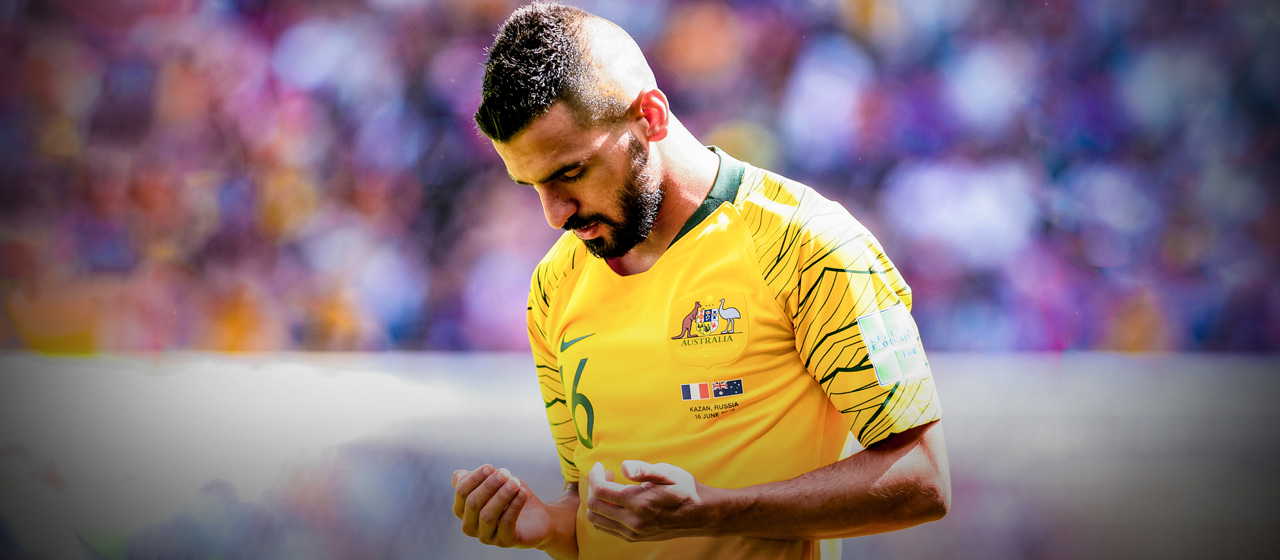
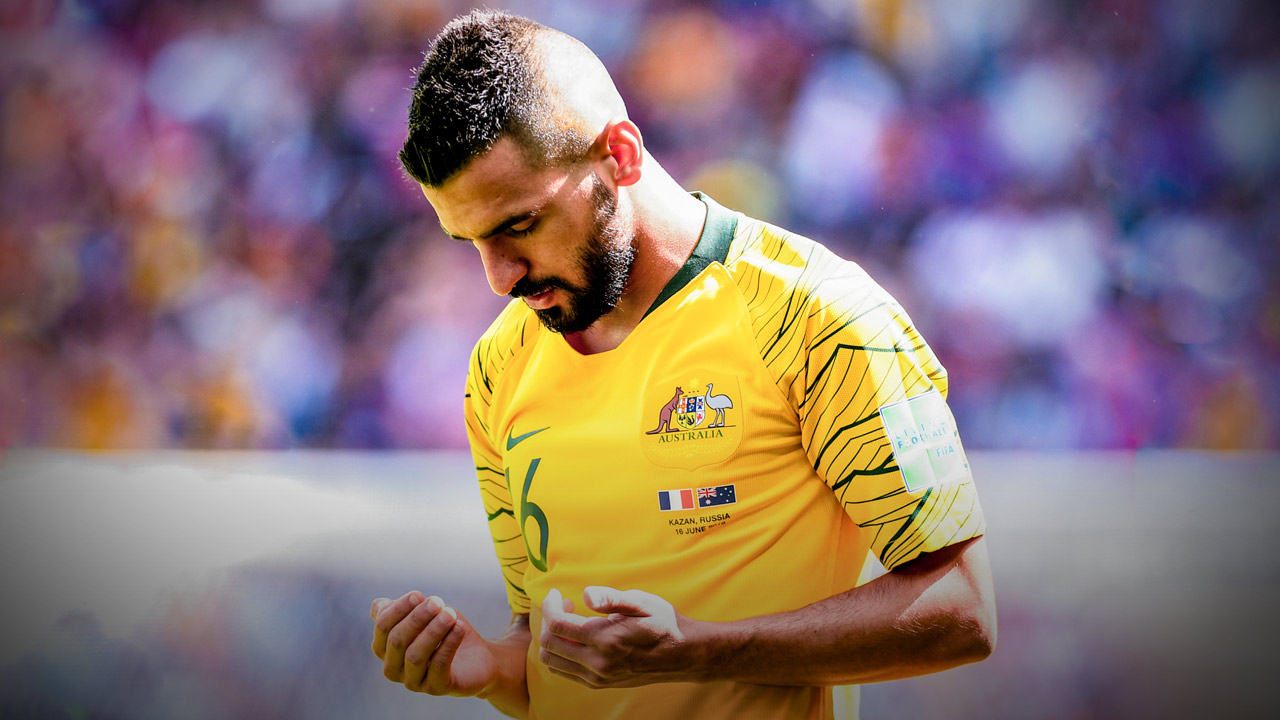
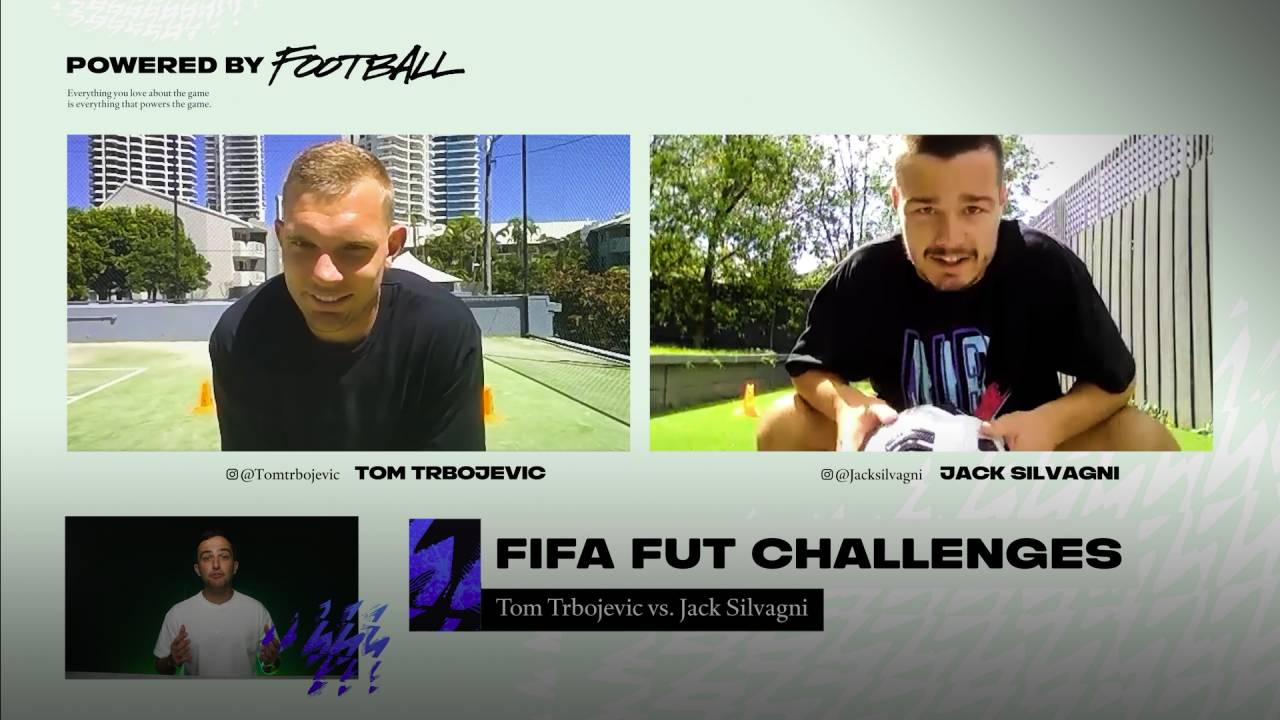
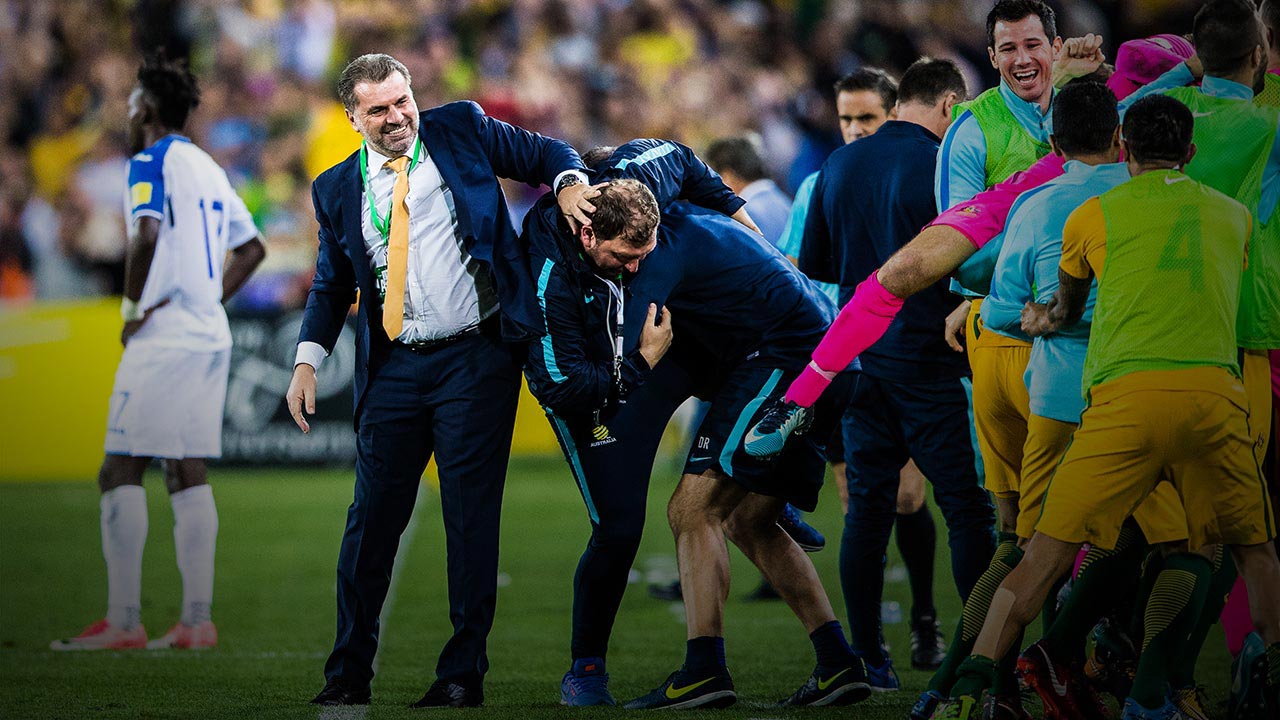
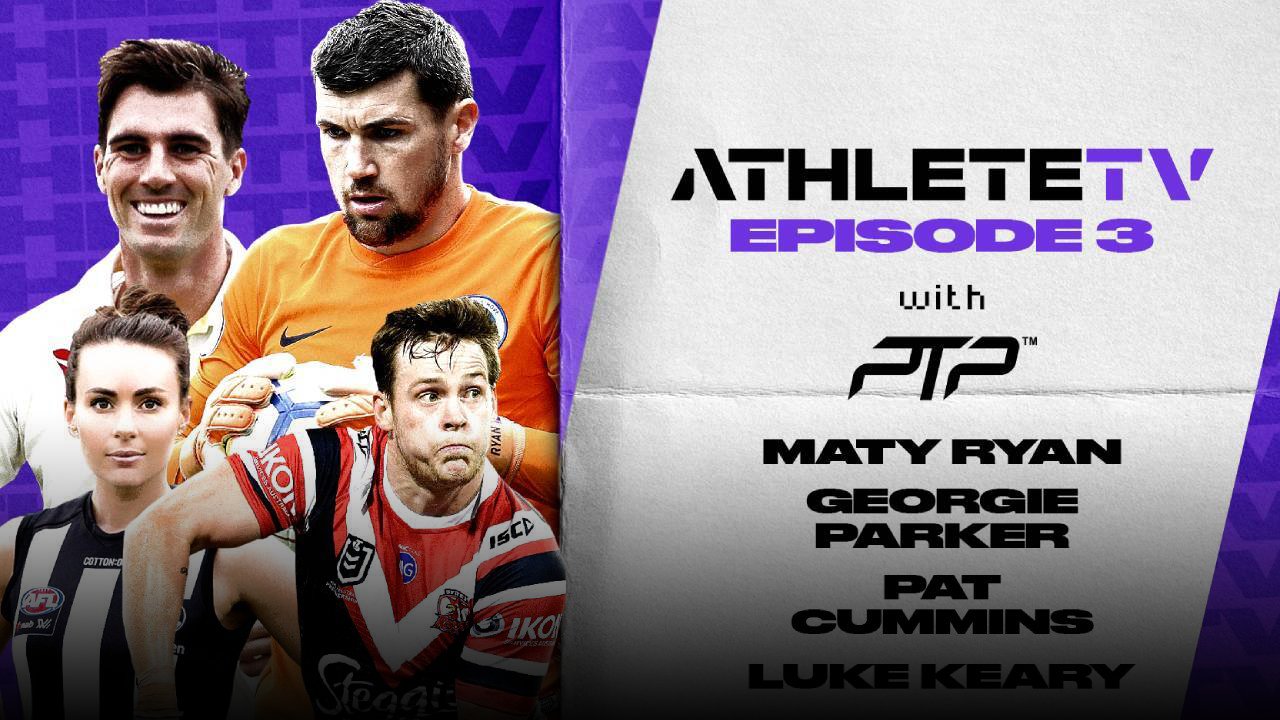
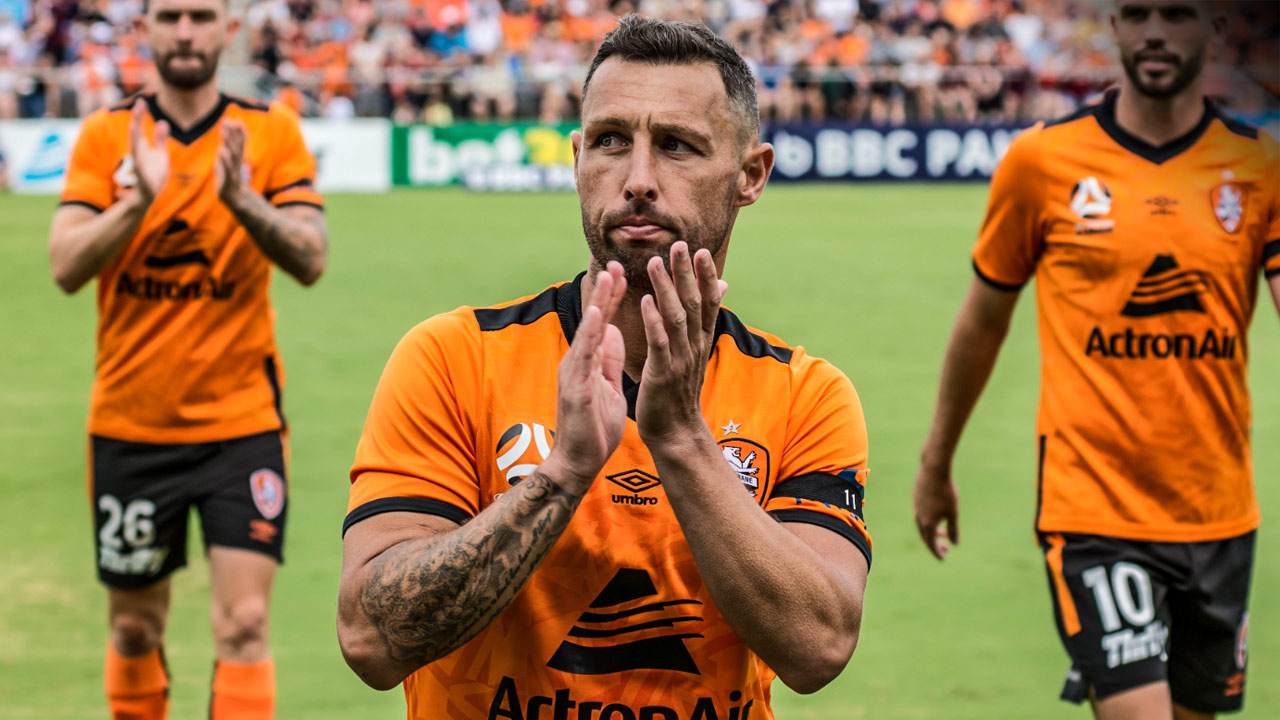
 Load More
Load More